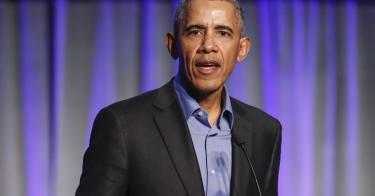The war in Syria was like a stone thrown into a lake. The initial splash has subsided, but the waves are spreading throughout the region. Where the waves meet the shores of the lake, they splash again into new wars. The wars of the Persian Gulf, the Kurds, and Israel are beginning.
The modern Middle East has rarely been peaceful. But today, its wars have a new shape. A few years ago, they were in the heartland of Syria. Now, they are on the periphery — Yemen, Qatar, Turkey, and soon, Israel. These are the wars after the Syrian war — and they flowed naturally from it, and from U.S. policy.
The Obama administration believed that the United States was too involved in the Middle East. That idea was not completely wrong: fundamentally, Asia and Europe are more important to the United States than the Persian Gulf. But it was wrong to believe that less U.S. involvement would bring more peace.
The role of U.S. power — everywhere — is to reassure our friends and deter our enemies. We often focus too much on the deterrence role, but the reassuring role is often just as important. If we were not there to reassure, our friends would find it necessary to act in ways contrary to our interests.
In Europe, the purpose of NATO was as much to reassure Western Europe as it was to deter the USSR. In Asia, our alliances with Japan and South Korea keep their nervousness about China and North Korea within tolerable limits. In the Persian Gulf, we backed up Saudi Arabia against Iran.
The reason we do this is not because we are nice guys. It’s because we don’t want Germany, Japan, South Korea, and Saudi Arabia to become nuclear powers to protect themselves. And we don’t want that because we believe that, on the whole, we’re safer if the spread of nuclear weapons is limited.
When the United States withdraws, we expect our allies to start taking out insurance policies on their own, and our adversaries to become more aggressive. That is what we have seen in the Middle East. As the Obama administration withdrew, Saudi Arabia grew nervous, and Iran advanced.
The result of that advance was the war in Syria. Of course, even before Iran was involved, the Arab Spring brought revolt to Syria. But it was Iran that made the struggle what it became — a war meant to spread Iranian power.
Today, the Saudis are engaged in wars on several fronts. At its rear, it struggles to pacify Yemen. On its flank, it blockades Qatar. A blockage, classically, is an act of war. These are the acts of a new leadership seeking to control its neighbors out of fear for its region.
The same is true, in a lesser way, of Turkey, which fears the Syrian war has brought new assertiveness to the Kurds. And so Ankara wages war on the Kurds, both inside Turkey and on its borders.
And then there is Israel. If Iran controls Syria, as it now does, Lebanon cannot be free — and if Lebanon is dominated by Iran’s Hezbollah, Israel will face greater threat.
That day is not far away. The recent Israel airstrikes in Syria, the Iranian military presence in Syria, and the growth of Hezbollah’s military capabilities in the Syrian war tell us that the next war on the edges of the Middle East will likely be waged against Israel.
These wars are the result of antagonisms than began long before 2008. But old hatreds alone do not make wars, an opportunity is also required. And the withdrawal of the United States created that opportunity. So welcome the Middle East to the wars after the war — the wars of Barack Obama.
This piece originally appeared in Newsday



